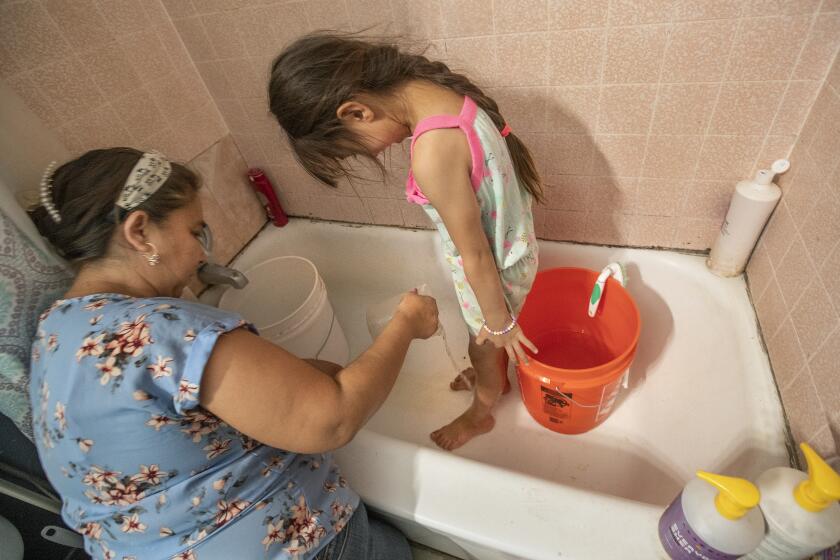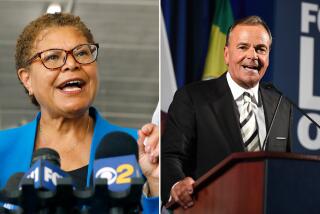The Central Valley gives California a recall rarity: a squeaker of a race
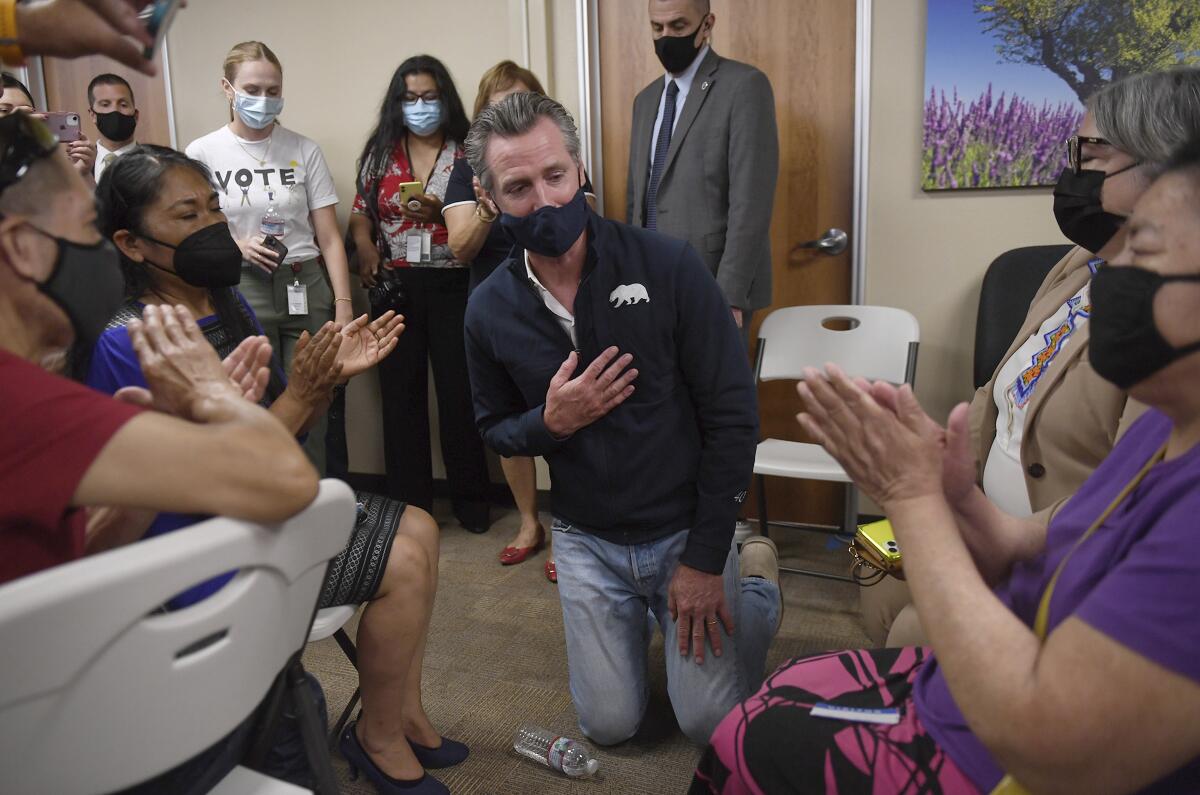
FRESNO — Nearly everywhere you look in California, the special election to kick Gavin Newsom out of the governor’s mansion was one blowout after another.
At one end of the spectrum, 86% of San Franciscans voted to let Newsom finish out his term, versus a paltry 14% who wanted to give him the boot. The Lassen County vote was a mirror image of electoral emotion; 84% voted to get rid of him, compared with 16% who wanted him to stay.
In 48 of California’s 58 counties, from Oregon to the Mexico border, voters either loved the guy or hated him, with double-digit differences on Saturday afternoon between the yes vote and the no.
Except for one small island in the middle of this vast state, where the recall election was a nail-biter.
Here in the agricultural heart of California, where the drought weighs heavy and the pandemic even heavier, the results were nearly 50-50.
In Merced County, the recall lost by 38 votes. In Fresno County, where the population just crested a million, it won by fewer than 2,000, according to an updated count released by local election officials Friday afternoon.
In both counties, that amounts to one percentage point or less separating yes and no.
Parity in a polarized world.
Both sides here are claiming victory and both point to Latino voters as an important part of their success. Ballot counting continues throughout the state, and little will be known for sure until the vote is certified in just over a month. The political picture could shift at the county level.
But a few things are clear. The recall failed dramatically statewide. And demographics are destiny.
“The proportion of Latinos [in the Central Valley] is rapidly growing, and to the extent that Latinos have been showing a preference for the Democratic Party, it is an indicator of a strong future for the Democrats,” said Thomas Holyoke, a professor of political science at Fresno State University. “But the Latino vote breaks apart. ... The early returns from the recall show that a lot of Latino men backed the recall.”
In Fresno County, the Latino population has jumped 15.5% between 2010 and 2020, according to the U.S. Census Bureau, while the white population has fallen 10.7%. The shift has been even greater in Merced, population 281,000 and change. The Latino population there has grown 23.8%, while the white population has dropped 15.8%.
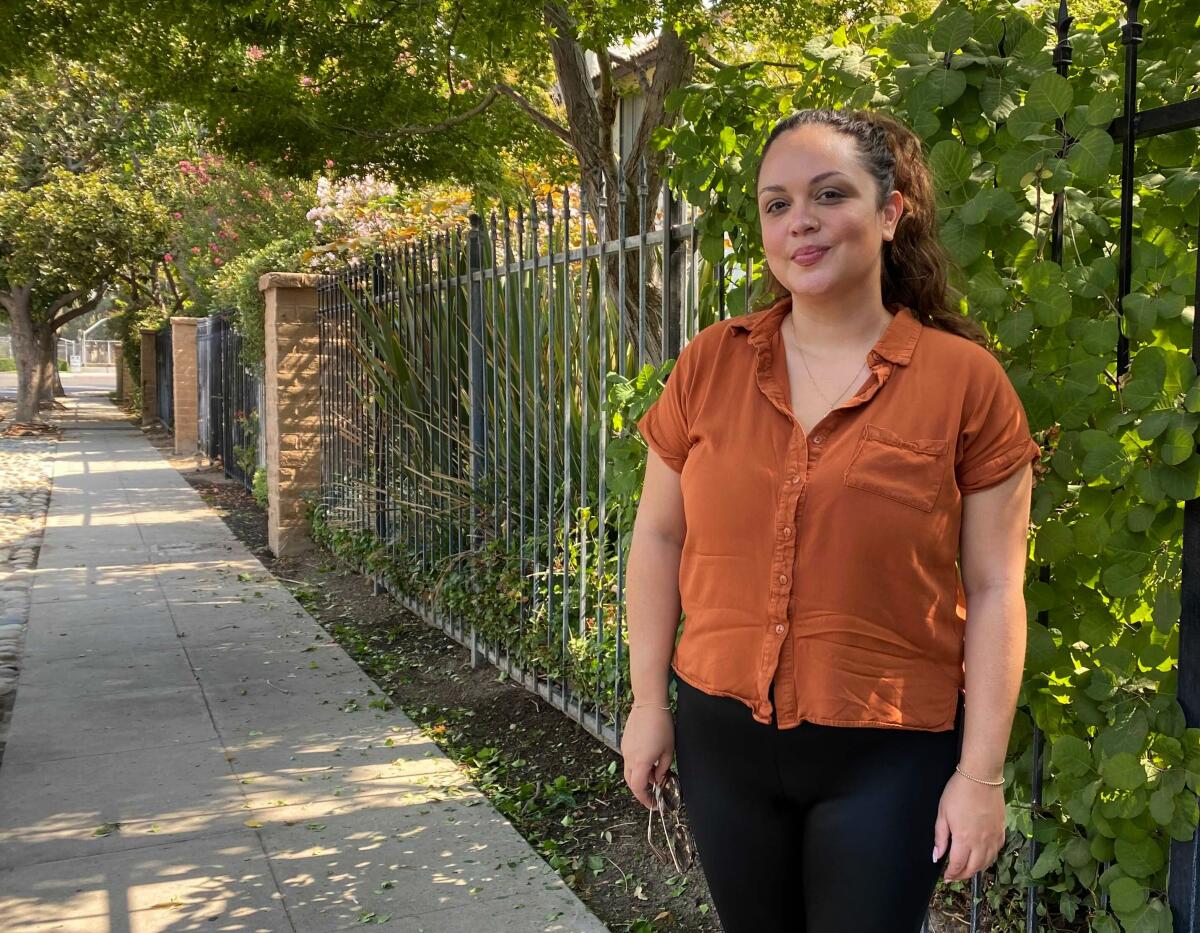
On a Friday afternoon, just before the Fresno vote tally was updated, Alicia Olivarez drove her silver Nissan Rogue through the streets of southeast Fresno. It is an area of modest homes, chain-link fences and burglar bars, where she and others with Power California Action have been reaching out to young Latino voters.
“We contacted 15% of the electorate in Merced,” said Olivarez, director of policy and narrative for the group, which operates from San Diego to Santa Rosa. “We called Fresno and the Central Valley. We door-knocked in Merced. [During the recall] we put all of our resources in one place. That’s why we’re seeing these close numbers.”
Olivarez was the first person in her family to vote. It was 2012. She was living in Oakland, about to turn 24, frightened, “not knowing what to do.”
The dearth of essential resources — clean water, adequate housing and fair employment wages — has crippled overlooked communities and triggered a slow exodus to bigger places.
Her co-workers at a Bay Area nonprofit helped her register, find her polling place, make a voting plan. When it was over, she took a picture with her “I voted!” sticker. Then she helped her parents register and vote — her father who worked in agriculture and construction, her mother who labored in a factory. Then her brother and her sister.
Crisantema Gallardo is another one of those younger voters. Like Olivarez, she left and returned to fight for a better life for her farmworker parents and others like them after graduating from UC Berkeley. For five years, she said, she has been helping to register Latino voters like herself in Merced, preaching that as the growing majority here, “their truth should be at the forefront” of politics.
Now, along with community organizers, political activists and labor unions, she’s helping thousands of young Latinos in the traditionally red Central Valley make that a reality.
Data from the UCLA Latino Policy and Politics Initiative show that Latino residents of Merced County voted 75% against the recall, while white voters there came in at 75% in favor of ousting Newsom. The takeaway, said Sonja Diaz, the founder and director of the UCLA center, is that California’s electorate is increasingly influenced by younger voters of color, even as “mature” white voters decline across the state.
That demographic shift should be fueling a change in how campaigns are run, Diaz said, prioritizing outreach to diverse communities rather than considering them an add-on to traditional voter outreach.
“We need to stop relegating diverse voters to the margins,” she said.
Lindsay Hopkins was field director for the Stop the Republican Recall campaign and is deputy political director for Service Employees International Union. She said much of the effort in the Central Valley has been about getting past the notion of a “Latino vote” and acknowledging the diversity in communities of color.
Election experts have already begun parsing how Latinos voted on the recall. The early upshot is that more Latinos were against it than for it, she said. But they supported the Democratic position at lower percentages than in past elections, according to analysis by election data expert Paul Mitchell.
In an unincorporated sliver of Madera County, the drought parched the natural landscape the Sevilla family once reveled in.
That has caused much hand-wringing about Republican inroads with immigrant voters. However, unions and community groups already knew, Hopkins said, that “ethnicities aren’t a monolith that do things one way, and that means being able to have real conversations with people.”
Fred Vanderhoof, chairman of the Fresno County Republican Party, points to the recall’s paper-thin margin of victory here as an enormous success for the GOP. His changing county went big for Hillary Clinton in the 2016 presidential election, and did the same for Joe Biden in 2020.
But several factors helped turn Tuesday’s recall election into a Fresno County squeaker, he said. A jump in Latino Republicans is one. Increased voter outreach by the Republican party is another. And crime. And inflation. And water.
The drought has dealt a serious blow to Central Valley agriculture, and farmers blame the Newsom administration for cutting off the supply of irrigation water that usually flows to the region from the state’s rivers and streams.
“Water is our lifeblood here in the valley,” Vanderhoof said. “Our farms depend on water. Our supply is cut off by politicians in Sacramento. Democrats emphasize the fish getting enough water. ... Too much goes into the delta and not enough to the farmers.”
While Vanderhoof was pleased with Fresno County’s tight recall results, Tina, a Republican voter who declined to give her last name, was surprised that the recall didn’t do better here. She moved to Clovis — Fresno’s deep-red neighbor — from Orange County in 2013.
“It’s more conservative here than that,” she said Thursday night, as she headed for her seat at Chukchansi Park to watch the Fresno Grizzlies take on the San Jose Giants. “It’s so many farms here. ... I voted yes and Larry and so did everybody else I know. I don’t know a soul who voted no.”
That would be yes on the recall and a vote for conservative talk show host Larry Elder to take over if Newsom had been deposed.
The Grizzlies crowd was small but boisterous as the hometown boys beat the visiting team 7-6. They squawked and gamboled for the Chicken Shack dance cam. They cheered when their team went ahead in the bottom of the fourth inning and never looked back.
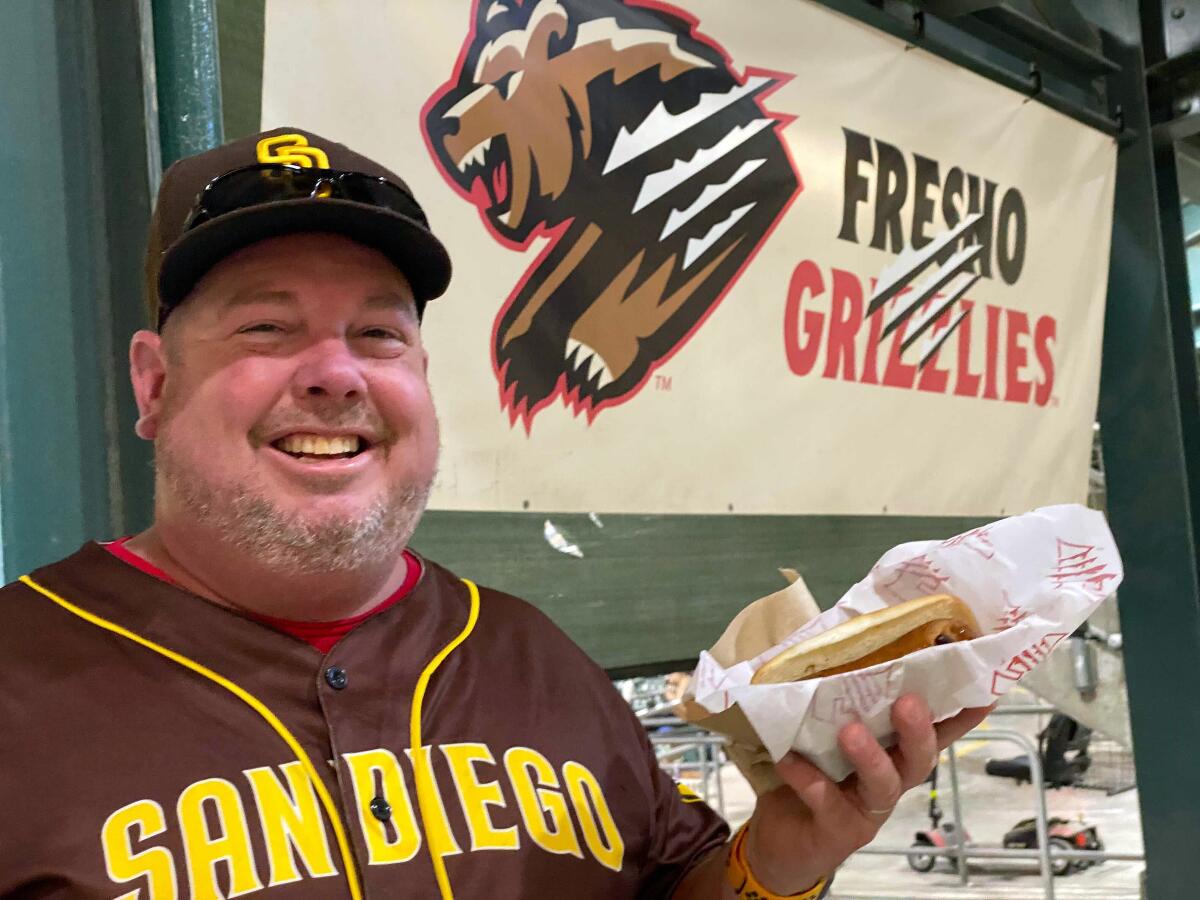
Shawn Wisley had just bought a hot dog — in his view, the only acceptable food at a minor league baseball stadium on a beautiful summer night. He was headed back to his seat as the Grizzlies began scoring the five runs that put them ahead of the Giants in the fourth.
Wisley is an educator in nearby Selma. He is fully vaccinated against COVID-19. He’s a registered Democrat who voted against the recall and supports mask mandates. He fears that schools might have to go back to distance learning if the coronavirus’ Delta variant isn’t stopped.
And he believes mandates helped fuel Central Valley anger at Newsom, that they’re a big reason the recall was so close.
Consider Cornerstone Church, he said. Just a mile from the ballpark in downtown Fresno, the church was part of a lawsuit filed against the Newsom administration after religious institutions were banned from holding in-person services because of the pandemic.
“In Fresno County, if you get to the Clovis side of things, you’ll see nary a mask,” he said.
He recently drove to Kingsburg, a small town south of Fresno proper. No masks there, either.
“I don’t think there’s anything more to it than that,” the 45-year-old said. “The shutdown because of masks and COVID.”
Still, a close call’s a close call, be it politics or baseball. It took the Grizzlies 10 innings to squeeze out a win Thursday night.
And, as of Saturday, the difference between yes and no on the recall in Fresno and Merced counties was still one percentage point or less.
More to Read
Sign up for Essential California
The most important California stories and recommendations in your inbox every morning.
You may occasionally receive promotional content from the Los Angeles Times.


